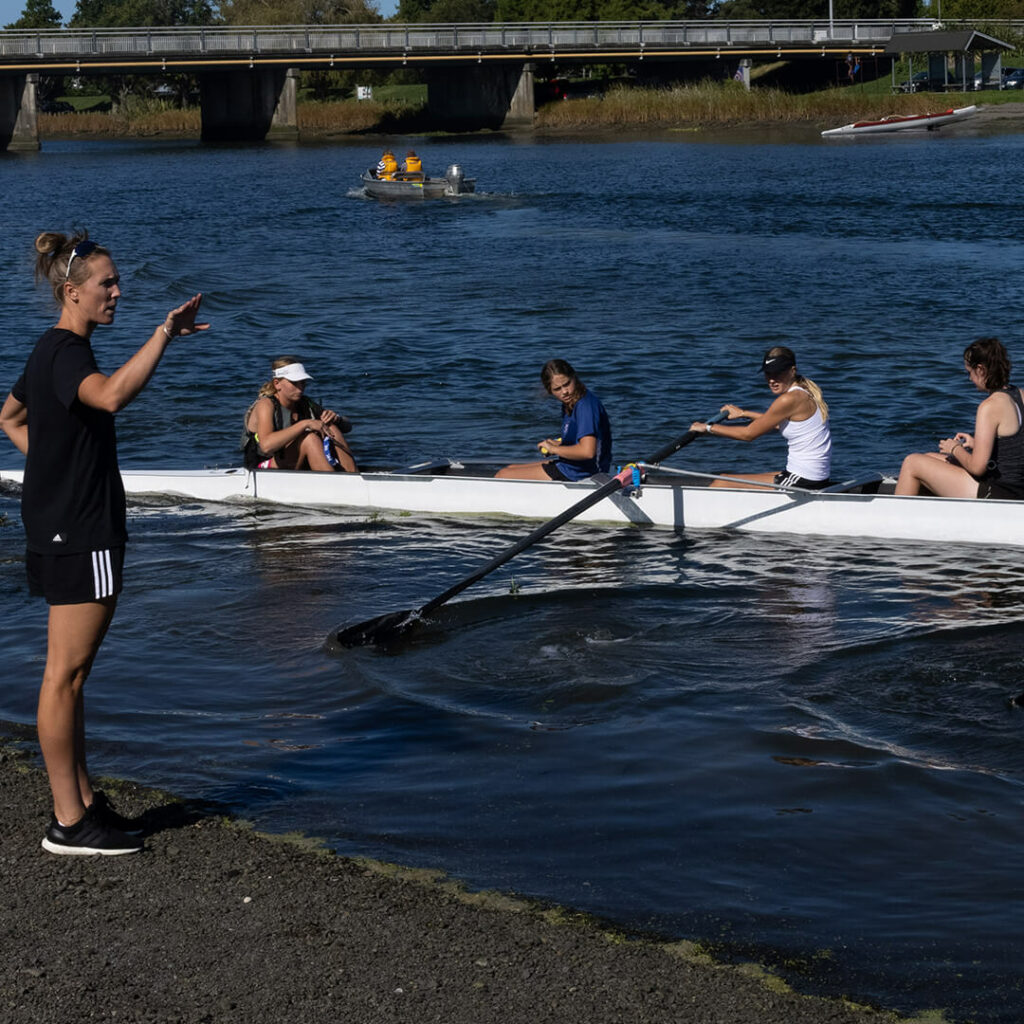With the news today that Dick Tonks is heading to coach in Canada, it’s going to be a really interesting period to see just how influential a coach can be on a rowing program. We’re confident that the New Zealand elite squad is absolutely stacked with coaching smarts that will mean our crews continue to lead the pack, but what will be most interesting to see will be Tonks’ influence in Canada. Will the New Zealand approach work with a different nationality? Will his renowned ‘tough’ training programs help the Canadians? All those questions will be answered in the next few years, but one thing is for sure – a coach can have a huge influence on a rower’s progression.
Getting it right early
The first few years a rower picks up an oar can be hugely important. It’s those years that you learn those initial movements and habits that end up forming the base of your stroke. You’ll also often find the love (or loathing!) of the sport, as well as pick up the training instincts you’ll take forward for years and years. For that reason, in some ways we actually think the coach of the novices can be as important to a club as the senior coaches. The benefit of instilling a knowledgeable and likeable coach in that role in a club can be hugely beneficial in later years.
Technique, fitness, technique, strength, technique, nutrition, technique
There are alot of factors that go into making a good rower, and the coach needs to be across all of them. Along with creating a training program that gets your athletes fit and strong, you need to be sure they recover well, eat well…even wear the correct clothing to help with performance. But the one thing that must be at the top of the list of every coach is technique. What sets apart a rowing coach and a personal trainer is their knowledge of rowing. If a coach can improve your rower’s technique and ability to move the boat, then they’ve ticked the first box on the coaching checklist.
Knowing your athletes & injury prevention
Teaching athletes the correct rowing technique isn’t just about making the boat go faster. Coaches have a huge responsibility in keeping their rowers injury free. That means understanding what movements in the boat are causing stresses on the body and what changes in technique, stretching and land based training can counteract those stresses to keep your athletes fit and healthy. Because rowing isn’t a high impact sport, we tend not to see injuries as regularly as some other team sports, but the repetitive nature of our training means that any injury that does come about can be pretty nasty and long lasting. Coaches must understand that and realise that if they do the right thing, they can save their athletes from serious long term pain.
Get the rigging right
Every coach in the boatpark should understand how their boat is rigged, and why they have set it up that way. How the boat is rigged has a big impact on the final result of any race, so along with making sure the rowers have the absolute best technique, it only makes sense a coach should make sure the equipment is in the best possible shape.
A school or rowing club coach in New Zealand is likely to fill a number of roles. They’ll be a nutritionist, a personal trainer, a sports psychologist, a boat master and a technical guru. They’ll see rowers at their best and at their worst. Their crews might win, or they might lose, but the important thing is that a good coach is there to help an athlete improve. A good coach will give their athletes the best tools possible, keep them injury free and will help them grow the love and enjoyment of our sport.


